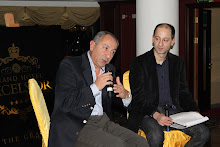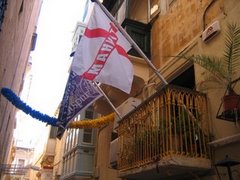GOOD HARRY REDKNAPP ARTICLE ON THE TELEGRAPH
Tottenham manager Harry Redknapp has risen from folk hero to top-class coach It is time to say goodbye to the cliché, to Harry the folk hero, the crafty Cockney, the wheeler dealer, the cheeky chappy with the gift of the gab – know what I mean? And to recognise formally Redknapp the high class coach.
Gareth Bale, Michael Dawson, Benoît Assou-Ekotto, Tom Huddlestone, Aaron Lennon, Jermain Defoe and Heurelho Gomes offer incontrovertible proof of Redknapp's power to transform, to mould, to improve, to inspire. All are better players now than they were before coming under Redknapp's tutelage.
Tottenham Hotspur did not achieve Champions League status by accident. Fortune played no part in the victory over Manchester City at Eastlands. Spurs understood the demand. Each did his job. They were organised, composed, executed a plan and won with little bother in the end. None of this surprised Redknapp.
Time to get serious about Redknapp It shouldn't have surprised us. He hasn't changed. It is perception that needs to alter to take proper account of a serious player.
There isn't a journalist working in football in England who does not have a Harry anecdote, a comic aside that reinforces Redknapp's potential for slapstick. Here's a personal favourite.
"What's happening about Marco Negri, Harry?" "Negri? Don't know what you are talking about? Who's he?" "That bloke from Rangers running around the training ground behind you." "Oh that Negri. Yeah we are having a look at him."
This was a comment on the times as much as Redknapp practice. Redknapp was in his first senior post having taken over at West Ham from Billy Bonds. Foreign players flooded the English market in the post-Bosman frenzy.
Training grounds doubled as clearing houses for exotic names. Inevitably mistakes were made. Redknapp's principal howlers were Marco Boogers and Florin Raducioiu, punts that did not even hint at coming off.
None of the same uncertainties informed his judgment of domestic talent. At West Ham Redknapp developed academy prospects Rio Ferdinand, Frank Lampard, Michael Carrick and Joe Cole.
At Portsmouth he plucked international footballers from under a perpetual Christmas tree, albeit with a leveraged chequebook, and won the FA Cup playing enterprising, open football.
The problem was that the quality of his output could never quite escape the suspect protocols of the Pompey business plan, which resulted in a dawn raid at his home in Poole and a case to answer brought by the Inland Revenue that is ongoing.
Thus his unveiling at Spurs following the hopeless failure of Juande Ramos was seen as a gamble for chairman Daniel Levy and a last chance for Redknapp to break free of the stereotype that chained him and to establish himself as a coach with bona fide credentials.
Redknapp's success exposed the default recourse to foreign coaches as the baseless fad it was. Ramos was imported from Seville a guru and left impotent, a man without a voice shuffling from foot to foot on the touchline powerless to shape events.
Redknapp made immediate sense of the chaos, giving the players a structure and leadership. Twenty months on he is a Champions League manager. Astonishing. Like most in the game Redknapp does not dispense wisdom using vocabulary from an academic register.
His English is estuary plain. The football lexicon is often a crude tool with its own rules. Redknapp is fluent in this language. What Tottenham have given him that he did not have before is a platform.
"I know a few journalists ridiculed me because I said there were good English coaches. There are good ones all over the country at all levels – it's a crying shame they don't get the opportunity," Redknapp said in the first flush of Wednesday's triumph.
Steve McClaren is similarly feted in Holland following championship success with FC Twente. Roy Hodgson's quiet revolution at Fulham draws universal admiration.
The English coach is suddenly the must-have accoutrement. The Bundesliga is in a lather over McClaren. Hodgson is seen as the man to nurse Liverpool to health. Redknapp's reputation now submits to the ultimate test.
There will still be some who sneer at his affection for 4-4-2, who question whether he has the tactical agility to move with the times, the flexibility to adapt to the technical demands of the continental challenge.
On Wednesday he said his policy would be to 'have a go'. Redknapp understands that tactics are subordinate to talent. That giving his players confidence is as important as structure.
Against City Tottenham showed themselves replete in both. Is he ready for the Champions League? Pah. Is the Champions League ready for Harry?


